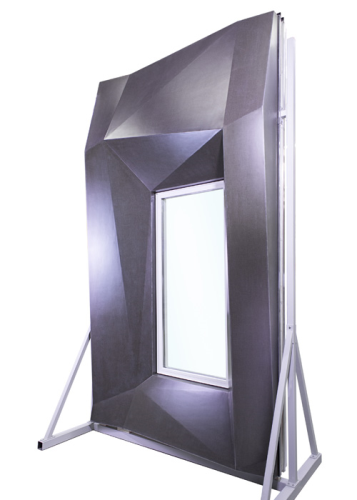
Biobuild is a collaborative project part funded by the European Commission, which aims to develop the use of biocomposite materials in building components. This could reduce the embodied energy in components such as façade panels, cladding, ceiling and internal-partition systems by at least 50% over current materials with no increase in cost.
The façade is reportedly the world’s first self-supporting façade panel for construction to be made of biocomposites. Developed primarily for commercial office buildings, the façade panel is 4.0 m high and 2.3 m wide and includes a glazing unit. It is composed of two biocomposite outer shells, made of flax fabric and bio-derived resin, with a central layer of insulation material. The panel is delivered to site as a fully prefabricated unit.
Performance requirements
The BioBuild team specifically developed the façade system to meet the stringent thermal, structural and fire performance requirements of building codes in Denmark, Germany, United Kingdom and Spain. The façade has also been designed with the full product life cycle in mind. All parts of the system can be easily detached from each other and either be recycled or reused at the end of the life cycle.
‘This innovative product pushes the boundaries of both façade and materials engineering towards new targets by using biocomposites in an extremely demanding sector of construction,’ said Guglielmo Carra, senior engineer at Arup Germany, which designed the façade. ‘The design freedom of biocomposites can generate a strong impact on the appearance of buildings.’


